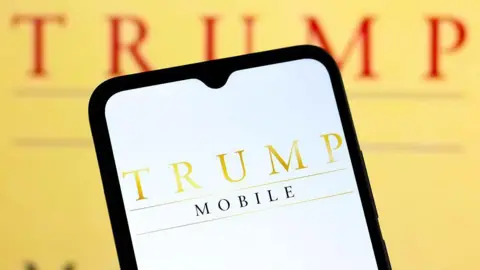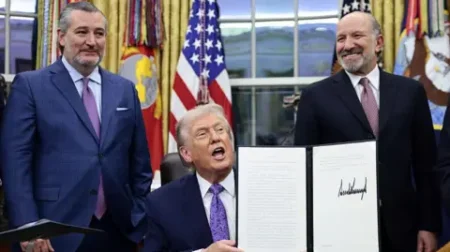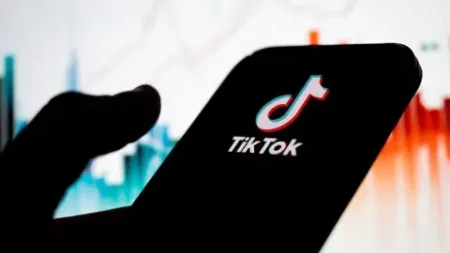In a recent shift in their marketing strategy, the Trump Organisation has removed references to American manufacturing for its new smartphone, the Trump T1, less than two weeks after announcing its production. Initially, the promotional materials for the Trump T1 included the tagline “Made in the USA” upon its launch on June 16. However, this phrase has mysteriously disappeared from the organization’s website, raising eyebrows and prompting investigative inquiries from various reporters.
Despite the omission from their web presence, Trump Mobile representatives insist that the phone will still be manufactured within the United States. A spokesperson emphatically stated during an interview with the BBC that any speculation suggesting otherwise is “simply inaccurate.” The organization remains optimistic about the impending launch of the phones, slated for later this year. They encourage potential customers to switch to Trump Mobile services even before the new devices are officially launched.
As part of their revised marketing message, the organization’s website now emphasizes the phone’s “American-Proud Design” and mentions that the device is “brought to life right here in the USA,” asserting that there are “American hands behind every device.” However, a significant change in the website’s vocabulary has also been noted: The section previously promoting the “MADE IN THE USA T1 Phone” has reverted to simply referring to it as “the new T1 phone,” a subtle yet impactful adjustment.
The adjustments to the promotional materials were first highlighted by tech news outlet, The Verge. Industry professionals have raised concerns over the feasibility of manufacturing a smartphone domestically in light of current technological limitations. Experts like Professor Tinglong Dai from Johns Hopkins University’s Carey Business School cast doubt on the project’s viability, pointing out that the Trump organisation does not have a working prototype yet. Prof. Dai underscored that achieving successful production in the U.S. would require a “miracle.”
Further complicating the scenario is the opinion of CCS Insight analyst Leo Gebbie, who remarked that the United States currently lacks the sophisticated high-tech supply chain necessary for smartphone assembly, especially if the company hopes to meet its self-imposed release date of September. Gebbie opines that it may be more plausible for the phone to be assembled in the U.S. using parts sourced from overseas. This method could allow the organization to maintain the notion of American production while still relying on global supply chains.
Skepticism surrounding the production of high-tech goods in the U.S. is not limited to Trump Mobile. This sentiment echoes attitudes related to President Trump’s past efforts to compel Apple to relocate its iPhone manufacturing to American soil. Previously, Trump had publicly pressured Apple CEO Tim Cook by threatening to impose tariffs should the company continue production overseas in places like India. In a related statement made on his social media platform Truth Social, Trump asserted his expectations for iPhones sold in the U.S. to be produced domestically.
Similarly, Dan Ives, a tech analyst at Wedbush Securities, described the notion of Apple manufacturing iPhones in the United States as a “fairy tale” that lacks practicality. On another note, Eric Trump, who is actively involved in the launch of the mobile phone initiative alongside Donald Trump Jr., reported in a recent podcast interview that they aspire for future phone production to transition entirely to the U.S.
This development not only reflects on the challenges of American manufacturing but also highlights the complexities and contradictions in the marketing strategies employed by the Trump Organisation. As potential customers await further updates on the Trump T1 and its promised American production, the revelation of the missing manufacturing tagline raises important discussions around authenticity, consumer expectations, and the realities of technology development.











